
The beginning of any new year, no doubt, holds its significance. Besides the pomp and pageantry, usually associated with the period, the dawn of a new year usually serves as that time period for individuals and corporate bodies to introspect, and strategise for the future.
Interestingly, Year 2023 presents such opportunities, too. For instance, not a few in the nation’s integrated marketing communications (IMC) sector have argued that the general outlook and shape of the industry may be determined by how well some factors and issues, within the space, are managed in the year.
What are these activities, and why would they serve as determinant factors for the multi-billion naira service sector in Year 2023?
One major factor, identified by industry watchers is the forthcoming general elections, and their prospects and challenges for the industry. The general elections scheduled for the first quarter of the year, many believe, would go a long way in determining the fate of businesses in the new year, including IMC. Just like in other sectors, the nation’s advertising sector also waits, with baited breath to see the new set of leaders and policy makers that would be unveiled, after the polls.
Without doubt, the credibility of such electoral process and its outcome, would impact greatly on businesses in the sector.
“It is only when the process is credible, and the right persons that understands the pain- points of the industry are in charge, that the sector will experience the much-sought after new lease of life,” argued a practitioner, who would not want his name in print.
The above argument may not be farther from the truth. For instance, stakeholders in the sector believe that the industry has not really gotten its fair share of attention from the present regimes, both at the national and sub-national levels.
And, one instance, the proponents of such argument has continued to use to justify such claim, remains the decision of the federal government to completely ignore the industry’s calls for a new chairman for its apex regulatory body, the Advertising Regulatory Council of Nigeria (ARCON). Since the Udeme Ufot-led regime was unceremoniously booted out, few months after the Muhammadu Buhari’s administration took over the reins of power, in 2015, the apex regulatory body has, surprisingly, been without a council.
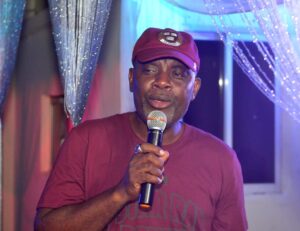
Osamede Uwubanmwen, ADVAN President
Besides being seen as a slight on the industry, comprising accomplished individuals, industry watchers also believe the refusal of the federal government to constitute a council for ARCON, had, in the past few years, held down developments in the industry.
“It is very difficult taking impactful decisions in the industry without a council. That is why you can count on your fingers, if any, the number of the fellows the industry had churned in the past seven years. It is only in our industry such a thing would happen for this long. Could the federal government have left the Central Bank of Nigeria (CBN) without a governing council for that long, or even Nigerian Bar Association (NBA), or Nigerian Medical Association (NMA)? It only shows the level of respect and recognition given to the industry as a whole,” argued Mr. Feyisetan Oladimeji.
Another of such factors that will influence the direction the industry’s pendulum might swing this year is how well contentious regulatory issues are sorted out in the year.
It is an open secret that it has been no love lost between practitioners and the regulatory bodies in some sectors, over regulatory framework. For instance, in the out-of-home sector of the IMC, the regulatory policies in some states have left some practitioners, at daggers drawn with the state regulatory agencies.
Except for Ogun and Anambra States, many practitioners believe the way the out-of-home sector is being regulated in other states of the federation is capable of running practitioners out of business.
For instance, the decision of the Lagos State Signage and Advertisement Agency (LASAA) to, among other regulations, impose levies on vacant billboards is no doubt seen by practitioners as inimical to the growth of their businesses.
Another of such controversial regulations by the state’s outdoor regulatory agency is the planned concession of some choice corridors in Lagos, allegedly to its favourites.
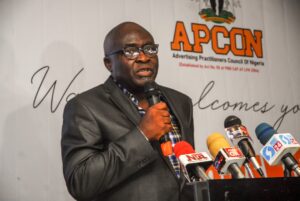
Emma Ajufo, OAAN President
While insisting such regulatory act does not provide a level-playing field for all players in the sector, it is the belief of practitioners that the sector, which prides itself as one of the largest employers in the IMC mix might be forced to shelve that toga, by throwing some of its employees into the labour market.
“On the issue of payment on vacant billboards, I think it is inimical to the growth of the business. How does one pay for an item that has not been able to generate revenue, due to no fault of the owners? I think it amounts to being insensitive to the plights of practitioners in the sector,” OAAN President, Emma Ajufo, had once remarked in a chat with Brands & Marketing.
The OAAN boss had also argued that the issue of concession would sound the death knell of many businesses in the industry; since the ‘juicy’ accounts would only be concentrated in the hands of a few.
Unfortunately, it is not only in Lagos that outdoor platforms are under siege. In May, 2022, despite several appeals to the Kaduna State government, by Heads of Advertising Sectoral Groups, the state government, through its agency, the Kaduna State Urban Planning and Development Authority (KASUPDA), went ahead to remove, destroy and sell off billboards of members of the Outdoor Advertising Association of Nigeria (OAAN), in some parts of the state; a development, practitioners, whose billboards were affected, are yet to recover from.
Unfortunately, such face-off and wrangling over regulations are not exclusive to the out- of- home sector. The advertising sector also had its fair share in the out-gone year.
For instance, the Advertising Regulatory Council of Nigeria (ARCON) in 2022, showed its readiness to bark and also bite in the year, by coming up with a series of reforms. One of such, was the introduction of the new Advertising Industry Standards of Practice (AISOP), in the year. But despite the favourable disposition of some sections of the industry to the new set of rules, expected to guide the nation’s advertisers, a critical section of the industry, the Advertisers Association of Nigeria (ADVAN), surprisingly took exceptions to some of those rules.
According to the body of advertisers, AISOP, as reeled out by the apex body, would not serve the collective interests, ‘but rather permit unfair authority of certain parties over others and create and unfriendly business framework’.
Perhaps, what many however found curious was the fact that the rejection was coming from a critical stakeholder, whose views and consent were said to have been sought and gotten before the pronouncement.
Strangely, the association denied having any input into the document, while insisting that it is never averse to reforms, as long as such reforms have the interests of every stakeholder into consideration.
But, for ARCON such objection and rejection is seen as an affront to the federal government. It is a set of rules any individual, or group of individuals, desirous of practising advertising, advertisement marketing communications in the country, must be ready to adhere to.
Not a few, therefore, see this as rather unhealthy for the industry. They argue that regulatory issues should be better handled to make them achieve positive results, adding that the way such issues are handled, this year, would go a long way in shaping the industry.
The planned removal of petroleum subsidy this year may not be without its implications for the industry, too. Not a few believe that a complete removal of subsidy on fuel might further widen the gaping hole in the pocket of the average Nigerian consumer, a development that would no doubt have its consequences for the industry.
“If consumers are no longer empowered, if they are no longer buying, due to lack of income, then the industry is threatened,” Feyisetan stated.
Speaking on the general outlook for businesses in the new year, an Investment Analyst/Portfolio Manager, Efosa Aluyi, believes there is no cause of alarm in the new year. He however argued that any government that would succeed the incumbent government at the centre might not enjoy the type of patience the government enjoyed on assumption of power in 2015.
Does the above position have any implication for the nation’s IMC space? While the industry waits with baited breath for events to begin to unfold in the industry, one that is obvious to stakeholders is the fact that some of the issues, enumerated above will, without doubt, play some significant roles in shaping the nation’s advertising industry in 2023.

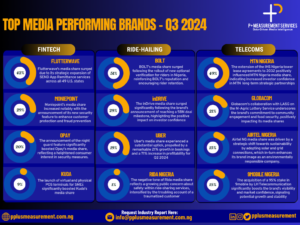
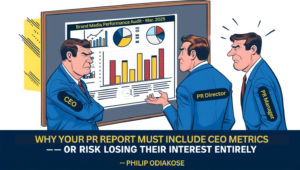


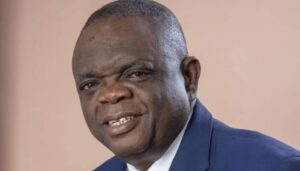
Comments